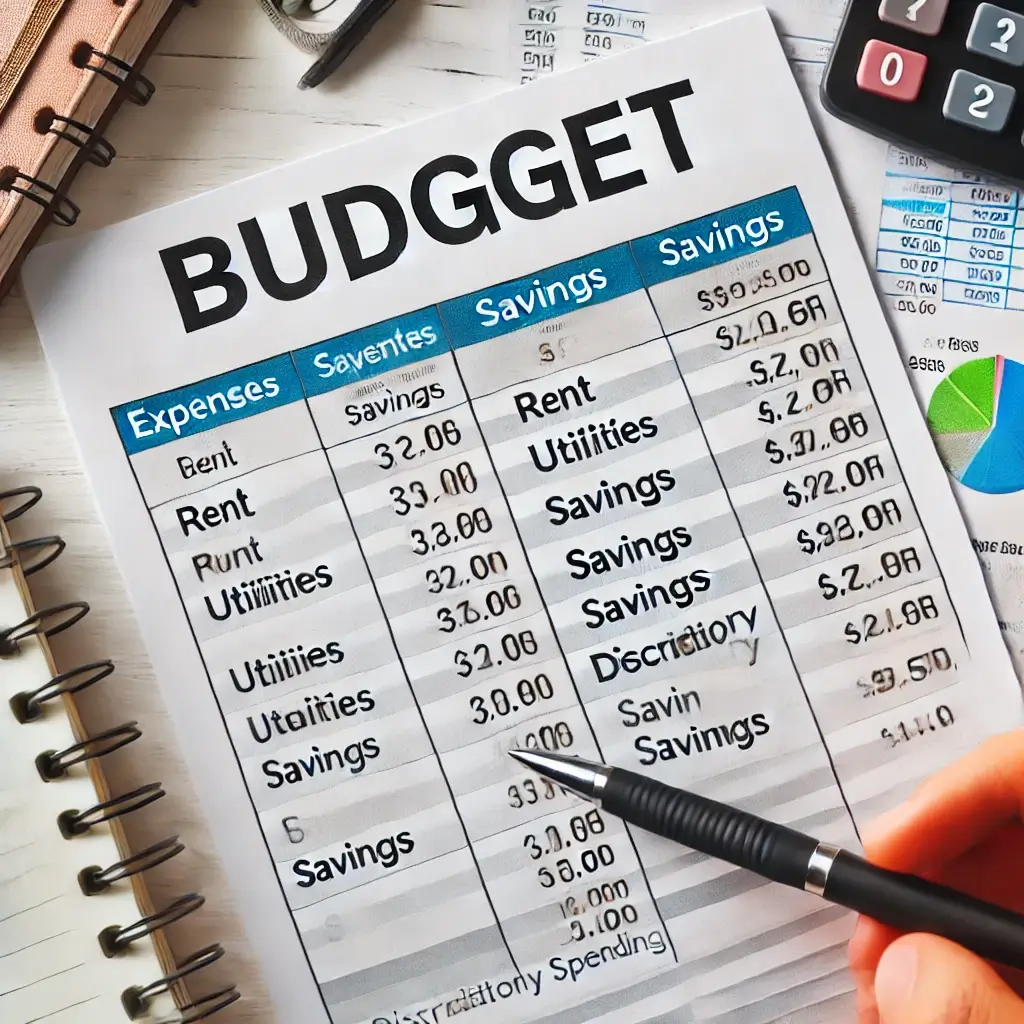Managing bills when your income is unpredictable can be stressful and overwhelming. Irregular earnings are common for freelancers, gig workers, and self-employed professionals. Without a consistent paycheck, learning how to manage bills when your income is unpredictable becomes a significant challenge. However, it’s not impossible. With the right strategies, you can take control of your finances and ensure your essential expenses are always covered.
Essential steps to manage bills when your income is unpredictable
Learn how to manage bills when your income is unpredictable with 7 practical strategies. Prioritize essential expenses, build a cushion fund, and gain financial peace:
1. Track Your Income and Expenses Consistently to Manage Bills When Your Income Is Unpredictable
- Why Tracking Is Important: One of the best ways to manage bills when your income is unpredictable is by tracking every dollar you earn and spend. Understanding your financial habits helps you make informed decisions, especially during months with low income.
- How to Track Effectively: Use tools like Mint, YNAB (You Need a Budget), or even a simple Excel spreadsheet. Document every income source, whether it’s from freelance gigs, side jobs, or seasonal work, and categorize your expenses.
- What to Look For: Identify patterns in your income and spending. Do you tend to earn more during certain times of the year? Are there expenses you could cut or reduce?
- Set Weekly Check-Ins: Schedule a weekly finance review to update your budget and evaluate your financial situation. This habit keeps you aware of your spending and ready for any income fluctuations.
Practical Tip: Break down your spending into essential and non-essential categories to get a clear view of where you can cut back.
2. Prioritize Your Essential Bills to Manage Bills When Income Is Unpredictable
- What Are Essential Bills?: Essential bills are non-negotiable expenses like housing, utilities, groceries, insurance, and minimum debt payments. When you manage bills when your income is unpredictable, these should always come first.
- Create a Must-Pay List: Make a list of all your essential expenses, including due dates and minimum payment amounts. This list ensures you’re prioritizing the most critical expenses before allocating money elsewhere.
- Setting Up Payment Reminders: Use apps or your phone’s calendar to set reminders for bill due dates. Missing a payment can lead to late fees and damage your credit score.
Example: If your essential bills total $2,500 per month, this amount should be non-negotiable in your budget, even during low-income periods.
- Automate When Possible: Automate payments for essential bills if your income is relatively stable. This reduces the risk of missed payments but make sure your account balance is sufficient to cover automated transactions.
3. Build a Safety Net with a Bill Cushion Fund
- What Is a Bill Cushion Fund?: A bill cushion fund is a financial safety net reserved for paying essential bills during low-income months. Building this fund is crucial when you manage bills when your income is unpredictable.
- How to Build It: During high-earning months, save as much as possible. Ideally, aim to have three to six months’ worth of essential expenses in this fund.
- Where to Keep Your Fund: Place your cushion fund in a high-yield savings account. This way, your money earns some interest while remaining accessible.
- Example Calculation: If your essential monthly expenses are $2,000, your goal should be to have $6,000 to $12,000 in your bill cushion fund.
Quick Tip: Treat your cushion fund like an emergency fund—use it only when necessary and replenish it as soon as you can.

4. Use the Envelope Budgeting Method to Manage Bills When Your Income Is Unpredictable
- How the Envelope Method Works: The envelope budgeting method involves dividing your income into different spending categories and placing the money for each category into physical envelopes. When the cash in an envelope runs out, you stop spending in that category.
- Digital Envelope Budgeting: If dealing with physical cash isn’t practical, consider using digital versions of this system. Apps like Goodbudget or Mvelopes allow you to create virtual envelopes for expenses.
- Prioritize Essential Envelopes: Always fund your essential envelopes first. Categories like rent, utilities, and groceries should be your top priority. Any leftover money can go toward non-essential envelopes, like dining out or entertainment.
- Benefits of the Envelope System: This method gives you a clear visual representation of your spending and helps you stick to your budget. It’s especially helpful when income is unpredictable.
Tip: During high-income months, fill extra envelopes for future expenses or to boost your cushion fund.
5. Negotiate Payment Plans and Due Dates to Manage Bills When Your Income Is Unpredictable
- Why Negotiating Helps: If you struggle to manage bills when your income is unpredictable, negotiating payment terms can provide relief. Many service providers are willing to work with you if you explain your situation.
- How to Negotiate: Contact your utility companies, lenders, or service providers. Ask to move your due dates to align with your pay schedule or negotiate a payment plan that suits your financial situation.
- What to Say: Be honest and explain that your income varies. Most companies appreciate proactive communication and may offer flexibility.
- Utility Assistance Programs: Some utility companies offer programs for customers with irregular income. Budget billing, for example, averages out your bills over the year to make payments more predictable.
Action Step: Always get any new payment arrangement in writing and keep a record for your files.
6. Take Advantage of Auto-Pay for Stable Bills
- Why Auto-Pay Is Useful: Auto-pay ensures you never miss a payment, which is helpful when managing essential bills. Use auto-pay for fixed expenses like rent, insurance, or loan payments.
- How to Use Auto-Pay Safely: Only enable auto-pay if you’re confident your account will have enough funds to cover the bills. Otherwise, you risk overdraft fees and additional financial stress.
- Backup Plan: Keep a small buffer in your checking account to cover automated payments, especially if your income is highly variable.
Pro Tip: Set up auto-pay for the minimum payment on credit cards. If you earn extra income, make additional payments manually.
7. Create a Flexible Budget and Adjust Regularly to Manage Bills When Your Income Is Unpredictable
- Why You Need a Flexible Budget: A flexible budget is essential when dealing with income fluctuations. It allows you to adjust your spending based on how much you earn each month.
- How to Create One: Start by listing your fixed expenses, then allocate money for variable and discretionary expenses. In high-income months, you can afford to be more generous, but in low-income months, you must scale back.
- Adjustments Are Key: Be prepared to adjust your budget regularly. If you have a particularly good month, use the extra income to pay off debt, boost your savings, or invest. In lean months, focus only on essentials.
- Budgeting Tools: Apps like EveryDollar and PocketGuard make it easy to track and adjust your budget. They also provide insights into your spending patterns.
Example: If your income varies between $3,000 and $6,000, have a plan for both scenarios. Use the lower amount as your baseline budget and treat any extra income as a bonus.
Conclusion
Managing bills when your income is unpredictable may feel overwhelming, but it’s entirely manageable with the right strategies. By tracking your income and expenses, prioritizing essential bills, and building a cushion fund, you can create a more stable financial environment. Use the envelope budgeting method, negotiate payment terms when needed, and keep your budget flexible. These practical tips will help you gain financial control, reduce stress, and set the foundation for a more secure future.
